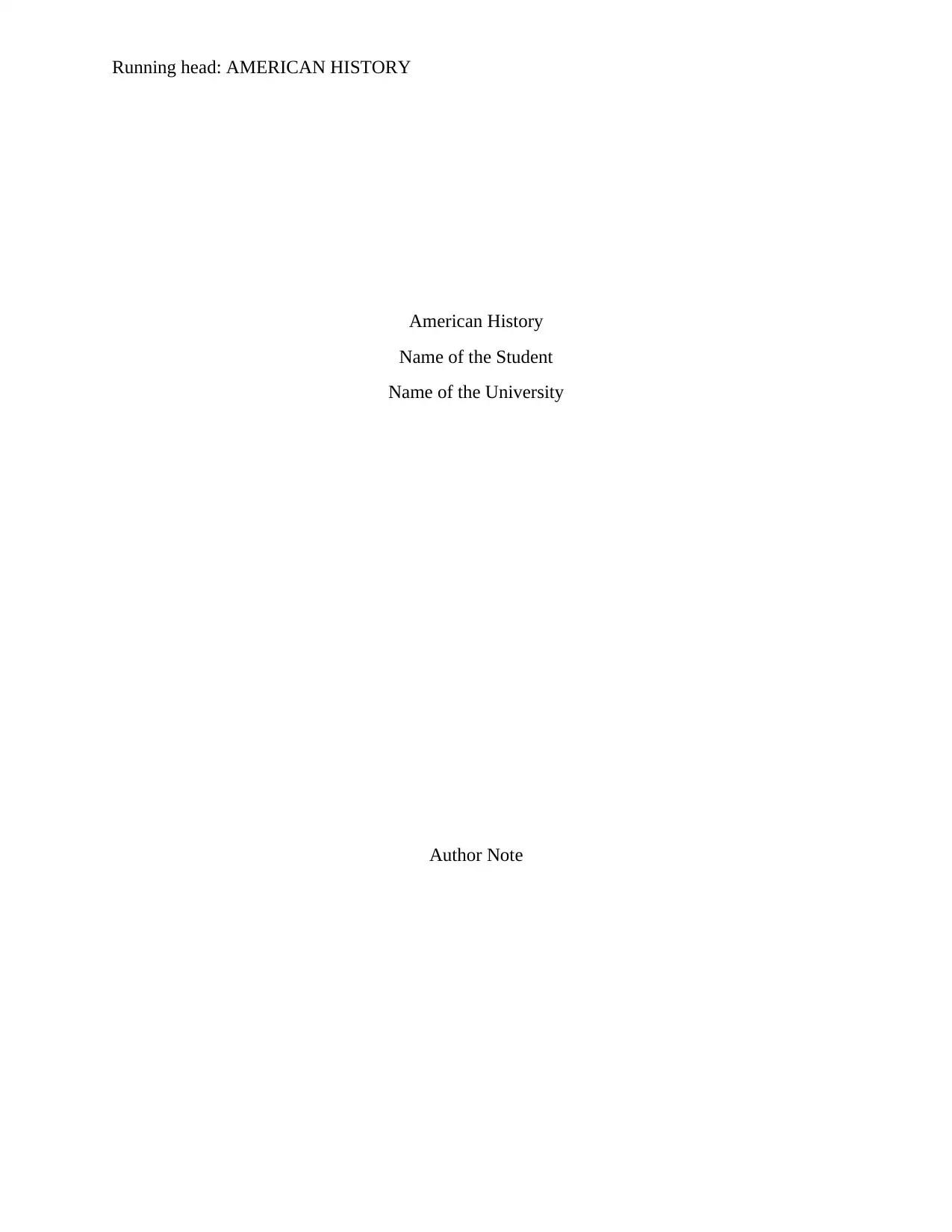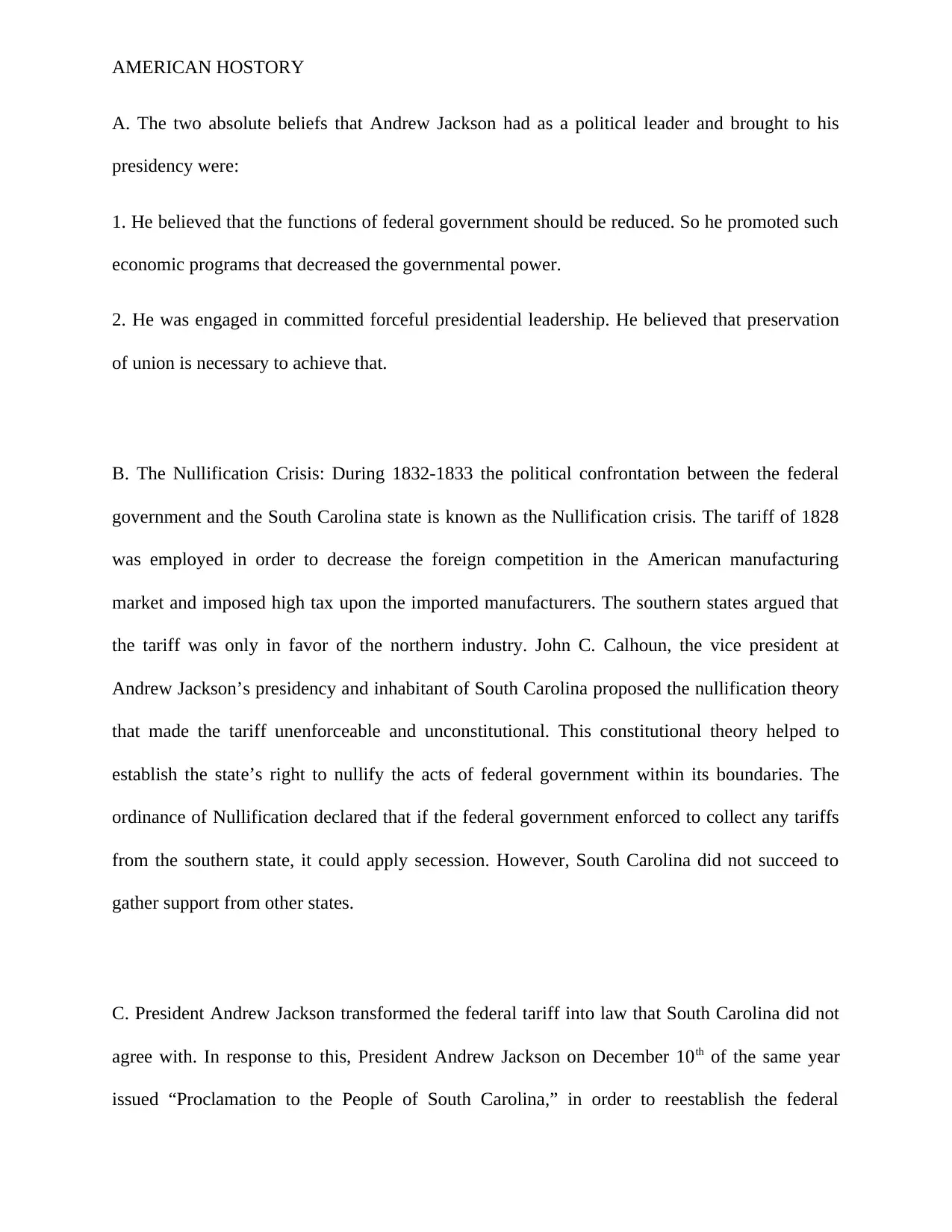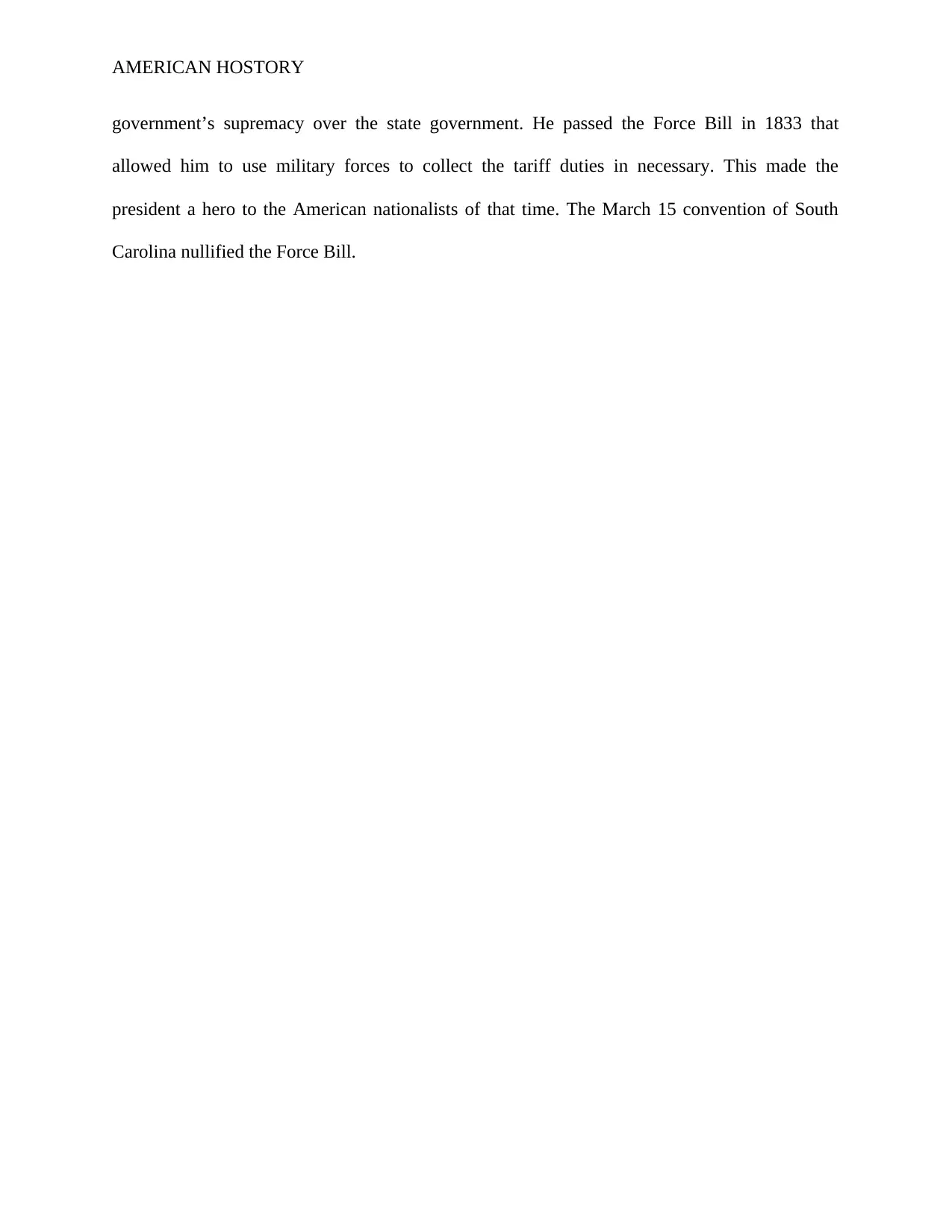American History: Examining Jackson's Presidency and its Impact
VerifiedAdded on 2020/04/15
|3
|357
|37
Homework Assignment
AI Summary
This assignment examines Andrew Jackson's presidency and the Nullification Crisis of 1832-1833. It details Jackson's core beliefs regarding federal government power and presidential leadership, including his commitment to preserving the Union. The assignment analyzes the events surrounding the tariff of 1828, South Carolina's opposition, and John C. Calhoun's nullification theory. It further discusses Jackson's response, including the 'Proclamation to the People of South Carolina' and the Force Bill, which asserted federal authority. The assignment highlights how Jackson's actions influenced the political landscape and his role in the historical context.
1 out of 3










![[object Object]](/_next/static/media/star-bottom.7253800d.svg)